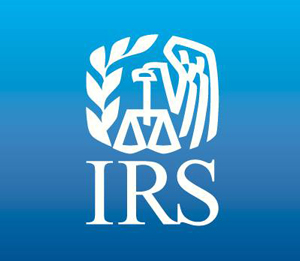April 5, 2024 - WASHINGTON — In the sixth part of the Dirty Dozen tax scams for 2024, the Internal Revenue Service warned taxpayers about  groups masquerading as charitable organizations to attract donations from unsuspecting contributors.
groups masquerading as charitable organizations to attract donations from unsuspecting contributors.
In natural disasters and other tragic events, it’s common for compassionate individuals to donate money to help the victims. Unfortunately, scammers often use fake charities as a cover to not only obtain money but also gather sensitive personal and financial information that can be exploited for tax-related identity fraud.
“We see repeated instances of scammers using major disasters as a way to prey on well-meaning taxpayers,” said IRS Commissioner Danny Werfel. “In these tragic situations, many people want to help, but con artists too frequently come in posing as charitable groups to take advantage of the situation, stealing money and personal information. People should remember it’s important to never feel pressured to give donations immediately. They should do some research and only donate to clearly established charities that help victims.”
Fake charities mark day six of the Dirty Dozen. Started in 2002, the IRS' annual Dirty Dozen campaign lists 12 scams and schemes that put taxpayers, businesses and the tax professional community at risk of losing money, personal information, data and more. While the Dirty Dozen is not a legal document or a formal listing of agency enforcement priorities, the education effort is designed to raise awareness and protect taxpayers and tax pros from common tax scams and schemes, including fake charities.
As a member of the Security Summit, the IRS has worked with state tax agencies and the nation’s tax industry for nine years to cooperatively implement a variety of internal security measures to protect taxpayers. The collaborative effort by the Summit partners also has focused on educating taxpayers about scams and fraudulent schemes throughout the year, which can lead to tax-related identity theft. Through initiatives like the Dirty Dozen and the Security Summit program, the IRS strives to protect taxpayers, businesses and the tax system from cyber criminals and deceptive activities that seek to extract information and money, including fake charities.
Real tragedies; fake charities
During times of disasters, fake charities become a concern. These deceitful organizations are created by scammers who take advantage of people’s generosity. They solicit money and personal information to victimize individuals through identity theft.
When taxpayers decide to contribute funds or goods to an organization, they may qualify for a deduction on their tax return, but only if they itemize their deductions. It is important to remember that charitable donations are valid when directed toward IRS-recognized tax-exempt organizations. Individuals intending to donate can utilize the Tax-Exempt Organization Search (TEOS) tool on IRS.gov to ensure legitimacy.
Beware of scammers who might use email communications or manipulate caller IDs to deceive people into donating funds to charities. These fraudsters often target groups such as seniors and those with limited English proficiency.
Here are some helpful tips to avoid getting scammed:
- Don’t give in to pressure. Scammers often create situations to get people to make payments. Genuine charities are always grateful for donations. Donors should take their time and research before making a charitable contribution.
- Exercise caution when making donation payments. Avoid any charity that requests gift card numbers or wire transfers. It’s better to pay by credit card or check after ensuring the charity’s authenticity.
- Verify the legitimacy of the charity. Scammers often use similar-sounding names for charities to confuse people. Before donating, potential donors need to ask the fundraiser for the charity's name, website and mailing address so they can independently verify its authenticity. Use the special IRS TEOS tool to verify if an organization is a legitimate tax-exempt charity.
- Avoid sharing too much information. Scammers are always on the lookout for both money and personal data. Never disclose Social Security numbers, credit card numbers or personal identification numbers. Only provide bank or credit card details after confirming the charity's legitimacy.
Report fraud
As part of the Dirty Dozen awareness effort regarding tax schemes and unscrupulous tax return preparers, the IRS encourages individuals to report those who promote abusive tax practices and tax preparers who intentionally file incorrect returns.
To report an abusive tax scheme or a tax return preparer, people should use the online Form 14242, Report Suspected Abusive Tax Promotions or Preparers, or mail or fax a completed paper Form 14242, Report Suspected Abusive Tax Promotions or PreparersPDF, and any supporting material to the IRS Lead Development Center in the Office of Promoter Investigations.
Mail:
Internal Revenue Service Lead Development Center
Stop MS5040
24000 Avila Road
Laguna Niguel, California 92677 3405
Fax: 877-477-9135
Taxpayers and tax professionals can also submit this information to the IRS Whistleblower Office, where they may be eligible for a monetary award. For details, refer to the sections on Abusive tax schemes and abusive tax return preparers.
Source: IRS








